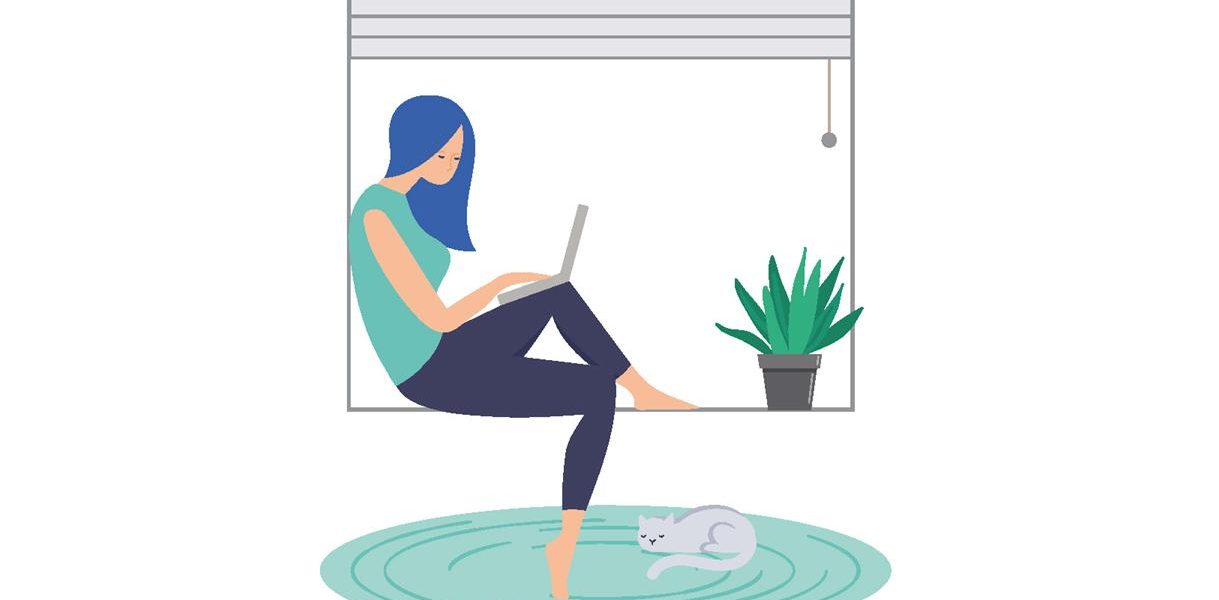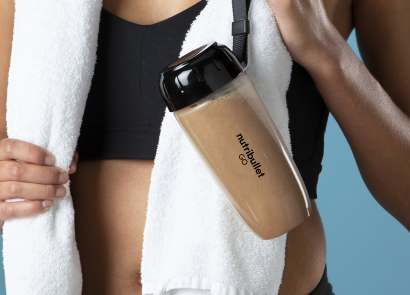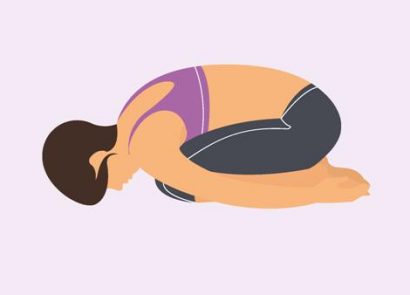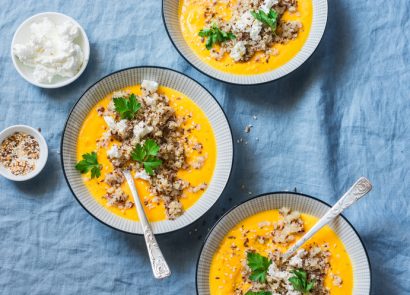Feeling overwhelmed and anxious? Give these eight, expert-approved techniques a try for instant calm
Use your breathing
“The breath is a bridge between mind and body,” says health coach Angelina Nizzardi (angelinanizzardi.com). “Anxiety often interferes with our breathing pattern and heart rate, but the four-seven-eight breathing technique can help recalibrate and restore the nervous system. A short inhale, followed by a twice as long exhale has a positive and immediate effect on the parasympathetic nervous system. When you feel anxiety creeping in, inhale through your nose for a count of four, hold for seven and exhale for eight.”
Schedule in exercise
“There is a significant amount of evidence that demonstrates a link between exercise and a positive mental wellbeing,” says Daria Kantor, founder and CEO of TruBe, a network of on-demand fitness and wellbeing industry specialists (trubeapp.com). “This also suggests that a sustainable fitness routine protects people against the likelihood of developing depression and anxiety, primarily as it releases several chemicals in the brain that can alter mood in a positive and healthy way. I often tell my clients to do a 20-30-minute exercise programme every day at the very least, as it helps to significantly reduce the symptoms of anxiety that they may be currently experiencing.” Why not join our Walk to Wellbeing campaign to walk 20 minutes a day? Turn to page 69 to find out how you can get involved.
Try mindfulness
“Mindful practises are a good diffuser of anxiety,” explains Angelina. “Try yoga, meditation or simply mindful walking in nature, where you are maintaining momentto- moment awareness. This helps to engage the rest of your body, slowing thoughts and increasing awareness. If you struggle with sitting meditation, carry out an everyday task with mindful intention.”
Postpone worry
“When you find yourself worrying about a future issue, put off that worry for a preorganised block of time, even if it is for later that day,” says Dr Riccardo Di Cuffa, director and GP at Your Doctor (your-doctor.co.uk). “Researchers found that patients who caught themselves worrying and then postponed that worrying for a pre-selected 30-minute block of time were calmer than patients who consistently worried throughout the day.”
Update your plate
“Anxiety can wreak havoc with your appetite but it’s important to feed your body with a full spectrum of nutrients,” Angelina advises. “Ensure you have adequate nutrients that support the nervous system, such as biotin, copper, iodine, magnesium, potassium, B2, B12 and B6. Try to cut down on stressors such as coffee, alcohol, processed foods, saturated fat and refined wheat. Make sure you have a good balance of fresh vegetables, fruit, oil-rich fish, nuts and seeds, wholegrain foods, fibre and protein.”
Get some sleep
“If you’re prone to anxious thoughts and feelings, getting a good night’s sleep can really help,” says Niels Eék, psychologist and co-founder of personal development and mental wellbeing app Remente (remente.com). “What is optimal will differ for everyone, for some, even five hours a night is more than enough. Clearing your mind before you settle down to sleep and removing all brain stimuli, like mobile phones, are great ways to ensure that you are prepared for sleep.”
Take it slow
“Give yourself permission to slow down,” says Angelina. “Turn down the dial on social events and friends and family commitments. Anxiety is a signal to stop and assess what is on your plate. Do not be afraid to say no!”
Talk it out
“Find someone you trust to speak with, whether that be for advice or just someone who is happy to listen,” says Dr Di Cuffa. “Alternatively visit your GP, perhaps booking a double slot. However, be careful of toxic relationships; if partners, friends, and even family have a negative impact on your mental health, putting some space between you could be invaluable to putting a positive outlook on life.



















